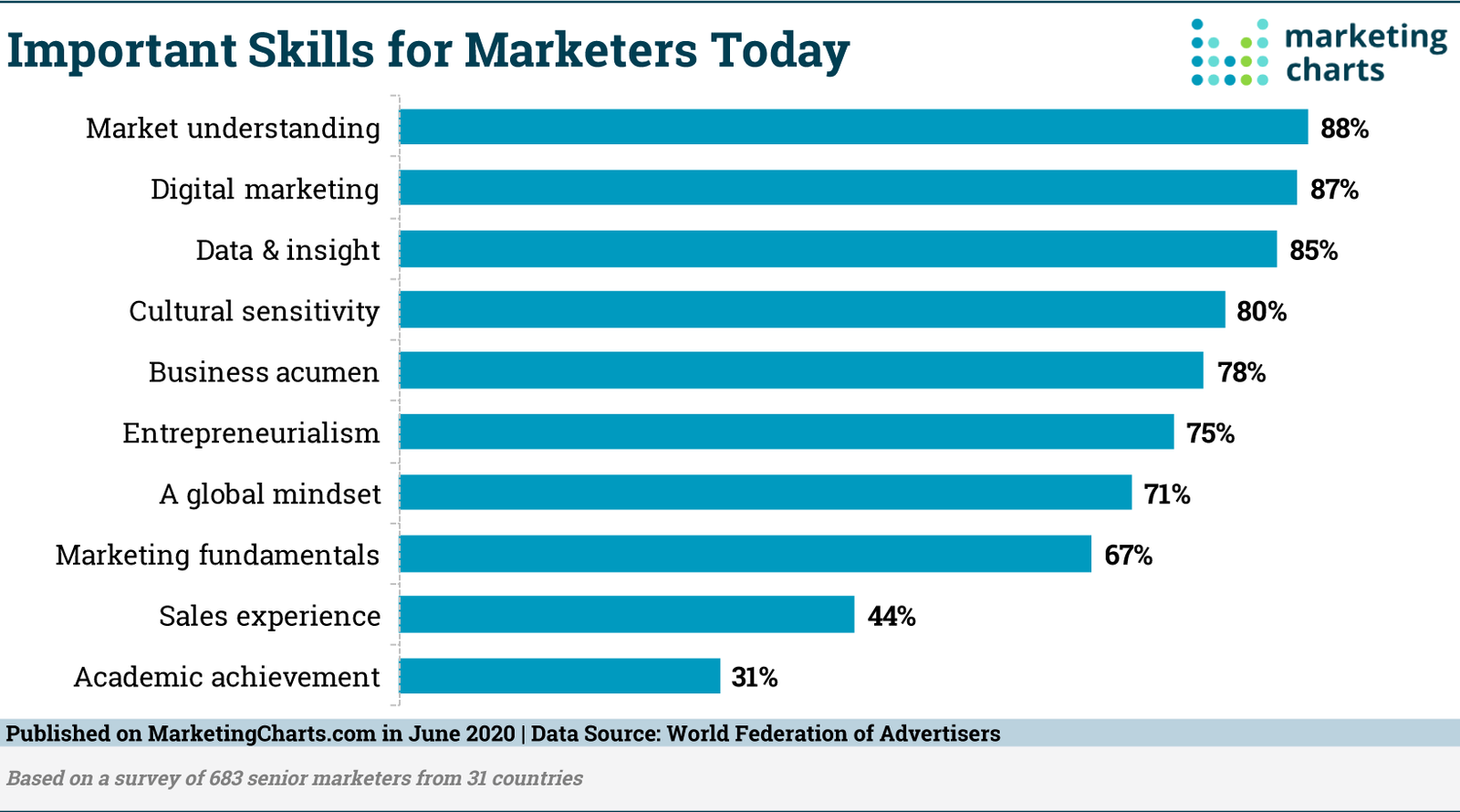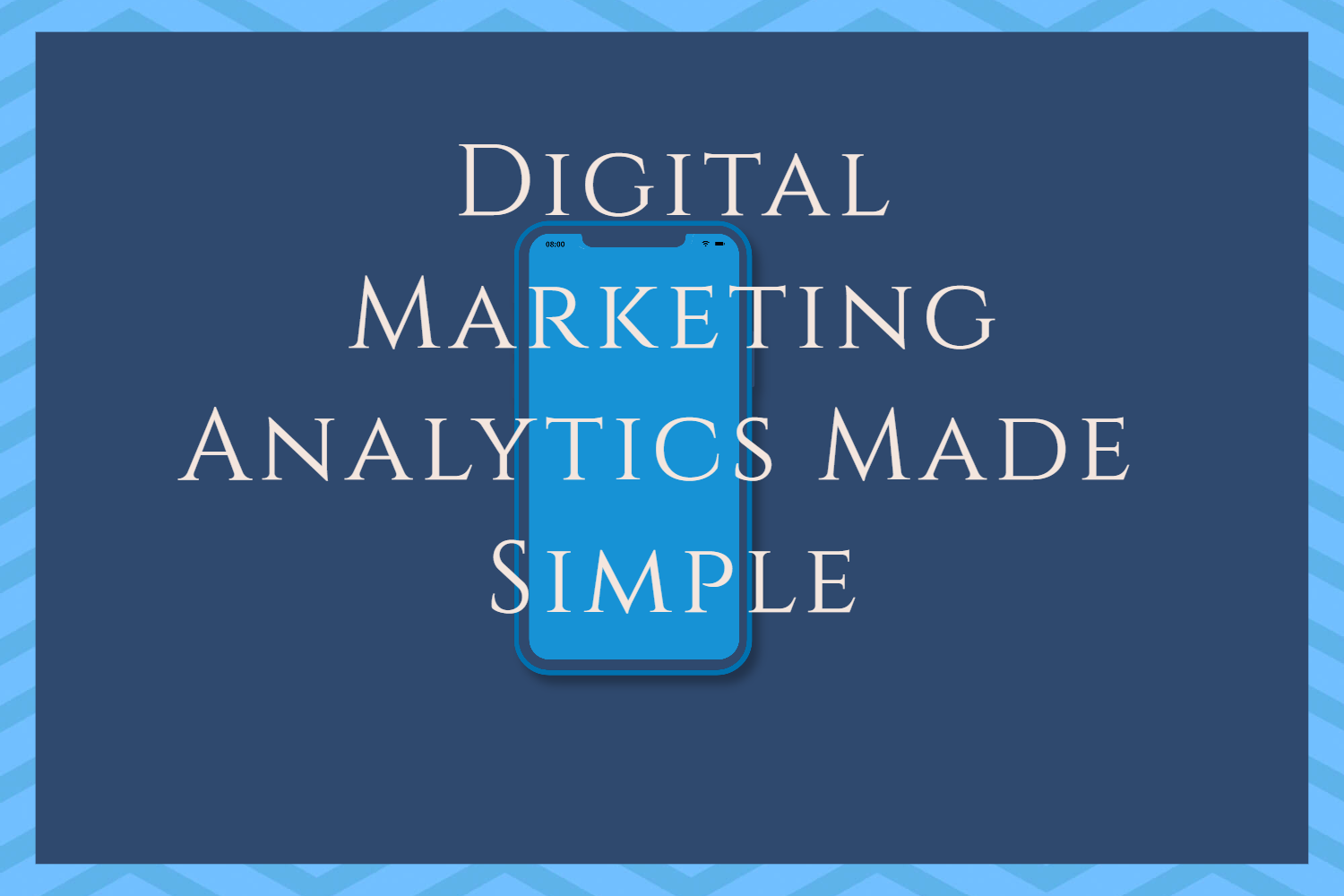Digital Marketing Analytics Made Simple
Understanding digital marketing analytics is essential for success in today’s world. This blog will cover its definition, key components, role in business, meaningful metrics, and how it aids lead generation. You’ll also learn to use digital marketing analytics to improve customer experience, personalize marketing strategies, and monitor campaign performance. We will discuss the future scope of
Understanding Digital Marketing Analytics
Gain actionable insights from cutting-edge digital marketing analytics tools. With data analysis, you can optimize your marketing strategies and measure the success of your campaigns. Leverage web analytics to track website traffic and conversion rates. By harnessing the power of customer data, you can personalize information and ensure that you are targeting the right audience.
Say goodbye to guesswork and hello to powerful analytics that can drive real-time results. According to Marketing Charts using World Federation of Advertisers 2020 data, digital marketing was the second most important skill at 87%, as shown in the infographic below. So you should take the next step in your digital marketing journey for 2023 and beyond, as it is even more critical now to unlock key insights using the right analytics tools.

Source: Marketing Charts
Defining Digital Marketing Analytics
Digital marketing analytics involves the analysis of data from various digital sources to understand the effectiveness of marketing activities. Marketers can make data-driven decisions and gain critical insights into customer behavior using analytics. It allows for measuring essential metrics such as click-through and bounce rates. With the right analytics tools, marketing professionals can optimize strategies, personalize marketing efforts, and track the success of their campaigns in real time. Digital marketing analytics eliminates guesswork and provides the necessary data to attract new customers and improve customer retention.
Key Components of Digital Marketing Analytics
To fully utilize digital marketing analytics, understanding its key components is essential. Social media analytics measures engagement and reach, email marketing analytics tracks open and conversion rates, web analytics monitors traffic and page views, and SEO analytics improves search engine rankings. We’ll talk more about these analytics types later. Analyzing data from different channels gives you insights for informed decision-making and enhances your marketing strategies.
The Role of Digital Marketing Analytics in Business
Digital marketing analytics plays a crucial role in business decision-making. Providing valuable insights into customer behavior and preferences enables businesses to make informed marketing decisions. Analytics allows for measuring marketing campaigns’ Return on investment (ROI), helping companies understand their strategies’ effectiveness. Leveraging analytics can lead to more targeted and effective marketing approaches, optimizing efforts and maximizing results. By analyzing data, businesses can identify areas for improvement and optimization, reducing guesswork and guiding the next steps toward success.
Enhancing Customer Understanding through Analytics
Gain a deeper understanding of customer needs and preferences by leveraging the power of analytics. Using customer journey analytics, you can map the customer experience to identify crucial touchpoints. Analyzing behavioral data allows you to uncover patterns and trends, giving critical insights into customer behavior. This information lets you personalize marketing messages and offers, ensuring customers feel valued and understood. By utilizing the right analytics, you can identify opportunities for improving customer satisfaction and build lasting relationships with your audience.
Predicting Consumer Behavior with Analytics
Anticipating and understanding consumer behavior is essential for any successful digital marketing strategy. Businesses can use machine learning algorithms to predict future trends and make data-driven decisions. Leveraging past customer data and employing predictive analytics allows marketing professionals to optimize campaigns and identify patterns and correlations using data visualization tools. This valuable insight helps businesses anticipate customer needs and attract new customers. With the right analytics, companies can stay ahead of the competition in real-time and make informed decisions to drive their marketing efforts forward.
Essential Metrics in Digital Marketing Analytics
Focusing on key metrics that provide valuable insights to make the most of digital marketing analytics is essential. Measure web traffic and engagement through page views and time on site to gauge audience interest. Track social media metrics like likes, shares, and comments to assess brand awareness. Monitor email marketing metrics such as open and click-through rates to evaluate campaign effectiveness. Analyze conversion rates to measure the success of marketing efforts. Additionally, utilize bounce rate and exit rate metrics to assess website performance. These metrics provide valuable information for marketing professionals to optimize strategies and drive results.
Website Related Metrics
Website metrics are crucial for understanding digital marketing analytics. They provide insights into website traffic patterns, user engagement, and conversion rates. Metrics like unique visitors, sessions, session duration, pages per session, conversion rate, and average order value indicate the effectiveness of your website. Understanding website performance is essential, with metrics like load time and bounce rate providing insights into functionality. Heatmaps and user recordings help identify areas for improvement. Analyzing these metrics enables data-driven decisions to enhance customer experience, optimize marketing campaigns, and drive business growth.
Social Media Metrics
Social media metrics are essential in analyzing the success of digital marketing campaigns. By measuring impressions, reach, engagement, and click-through rate (CTR), you can understand the impact of your efforts. Tracking likes, comments, and shares gives insights into content resonance. Monitoring follower growth and engagement rate on platforms like Twitter, Facebook, and Instagram provides key customer behavior insights. Sentiment analysis helps gauge customer opinions. You can optimize your social media strategy and drive results with the right analytics.
Email Marketing Metrics
Track key email marketing metrics to measure your email campaigns’ success. These metrics provide insights into campaign performance and effectiveness. Monitor open and click-through rates to assess email engagement and website traffic. Analyze conversion rates to understand the impact on desired actions. Keep an eye on bounce and unsubscribe rates to improve deliverability. Utilize A/B testing to optimize subject lines and content for maximum engagement—measure ROI by tracking sales revenue from email campaigns. Continuously refine your strategy by paying attention to these metrics for better results.

The Application of Digital Marketing Analytics
Gain valuable insights from social media data to enhance your marketing strategies. Measure the effectiveness of your email campaigns with analytics and optimize for better results. Track website traffic and identify areas for improvement using digital analytics. Implement SEO techniques based on analytics to boost organic search visibility and attract targeted traffic. Leverage marketing analytics tools to analyze customer behavior and optimize your marketing efforts. With the right analytics, you can make informed decisions and take the next step toward success in the digital marketing world.
Improving Customer Experience with Analytics
Analyzing customer data is crucial for understanding preferences and providing personalized experiences. By using web analytics, marketers can track user behavior and identify pain points in the customer journey, enabling them to optimize the user experience. Data visualization is vital in gaining actionable insights from the collected data and making informed decisions. Measuring and improving critical metrics are essential for enhancing customer experience. Real-time analytics allows marketers to make data-driven decisions promptly and improve customer satisfaction. The right analytics can genuinely transform the customer experience.
Personalizing Marketing Strategies Using Analytics
Personalization is crucial in today’s digital landscape. Marketers can use customer data and segmentation to deliver targeted messages that resonate with their audience. Analytics and machine learning algorithms help track interactions and predict behavior, enabling tailored marketing strategies. Leveraging digital sources like social media and website analytics allows businesses to create personalized marketing approaches that captivate and convert customers.
Monitoring and Adjusting Campaign Performance with Analytics
Monitoring and adjusting their performance using marketing analytics is crucial to run successful digital marketing campaigns. By tracking key metrics such as conversion rate, open rate, and page views, you can evaluate the effectiveness of your campaigns. Analytics tools provide real-time data analysis, allowing you to identify underperforming campaigns and make data-driven adjustments. This optimization process ensures that your campaigns continuously improve and reach their full potential. Additionally, utilizing digital marketing analytics tools enables you to measure ROI and make informed decisions for the success of your campaigns.
How does Digital Marketing Analytics aid in Lead Generation?
Using digital marketing analytics, businesses can evaluate the effectiveness of lead generation campaigns, measure key metrics like lead conversion rate and cost per lead, identify high-performing channels, and improve lead nurturing strategies. Furthermore, data analytics can help identify new potential customers for lead generation.
Evaluating Lead Generation Campaigns with Analytics
To honestly evaluate the success of lead generation campaigns, harnessing the power of marketing analytics is crucial. We can determine the quantity and quality of the generated leads by analyzing data. With the help of analytics, we can monitor the performance of different lead generation channels and make data-driven decisions to optimize our campaigns. By leveraging actionable insights, we can improve lead qualification and conversion rates, ensuring we target the right audience with the right strategies. Continuous optimization based on analytics is the key to thriving lead-generation campaigns.
Optimizing Lead Generation Strategies Using Analytics
Analyzing data is crucial for optimizing lead generation strategies. Businesses can improve targeting and messaging by identifying effective strategies and trends to increase lead conversion rates. A personalized approach based on customer data also enhances engagement. Digital marketing analytics tools offer real-time insights, empowering marketers to make data-driven decisions and improve results.

The Future Scope of Digital Marketing Analytics
The future will conitue exploring the integration of AI with digital marketing analytics to enhance predictions and drive better results. Leveraging chatbots can gather valuable customer data, enabling personalized experiences. Utilize big data analytics to uncover hidden patterns and insights for more effective marketing strategies. Real-time analytics provide immediate insights for proactive decision-making. Algorithms and machine learning can enhance the effectiveness of digital marketing analytics. By staying ahead of the curve and embracing these advancements, businesses can unlock new opportunities for growth and success.
Integration of AI with Digital Marketing Analytics
Unlock the full potential of your digital marketing efforts with the integration of AI. By harnessing the power of AI algorithms, you can automate data analysis and generate actionable insights to optimize your marketing strategies. AI-powered chatbots gather valuable customer data, providing personalized recommendations that enhance customer experiences. Utilizing AI-driven analytics tools uncovers hidden patterns and generates key insights, empowering your marketing team to make data-driven decisions. Incorporating machine learning techniques into digital marketing analytics ensures improved accuracy and efficiency, enabling you to stay one step ahead in today’s competitive landscape.
Influence of Voice Search on Digital Marketing Analytics
Voice search has revolutionized customer interaction with digital channels. Analyzing voice search data provides valuable insights into customer behavior and preferences, helping marketers optimize content for voice-enabled devices. Monitoring voice search metrics uncovers new opportunities for reaching and engaging with the target audience. Understanding the impact of voice search on digital marketing analytics is crucial for staying competitive. Incorporate voice search analytics into your marketing strategies to unlock critical insights and maximize your online presence.
Skills Required for Excelling in Digital Marketing Analytics
To excel in digital marketing analytics, it is essential to have proficiency in web analytics tools like Google Analytics. These tools allow you to analyze website traffic and understand user behavior. In addition, a strong knowledge of marketing analytics enables marketers to measure campaign effectiveness and make data-driven decisions. Familiarity with SEO and digital channels is equally important as it helps optimize online presence and track performance metrics. Furthermore, understanding customer data and behavioral analysis allows for personalizing marketing strategies for better results. Finally, the ability to interpret and communicate insights from data analytics is crucial for driving actionable recommendations.
Technical Skills for Digital Marketing Analytics
Proficiency in technical skills is crucial for digital marketing analytics. Marketing professionals should be skilled in data analysis and visualization tools like Excel and Tableau. Knowledge of statistical analysis techniques helps derive insights from complex datasets. Understanding algorithms and machine learning concepts enables marketers to leverage predictive analytics. Familiarity with coding languages like SQL and Python allows the manipulation of large datasets. Experience with web development aids in implementing and troubleshooting marketing tags and pixels.
How to Develop Analytical Skills for Digital Marketing?
Developing analytical skills for digital marketing involves taking online courses or certifications to build a strong foundation in analytics. Practice using data analytics tools and stay updated with industry trends. Collaborate with experts and challenge yourself to solve complex marketing problems using data-driven approaches.
Key Question:
Can mastering Digital Marketing Analytics lead to a successful career?
Mastering Digital Marketing Analytics can pave the way for a successful career. In today’s data-driven business world, professionals with expertise in this field are highly sought after by employers.
Analyzing and interpreting marketing data allows them to make strategic decisions that drive measurable business outcomes and design effective marketing campaigns. This skill set provides better job opportunities and higher salaries in the long run.
Final Thoughts
Digital marketing analytics is a powerful tool that provides valuable insights and helps businesses make data-driven decisions. By understanding customer behavior, optimizing marketing strategies, and monitoring campaign performance, companies can enhance the customer experience and drive better results. The future of digital marketing analytics looks promising with AI, chatbots, and voice search. To excel in this field, develop technical and analytical skills. Explore our other analytics blog posts for different techniques and strategies.
